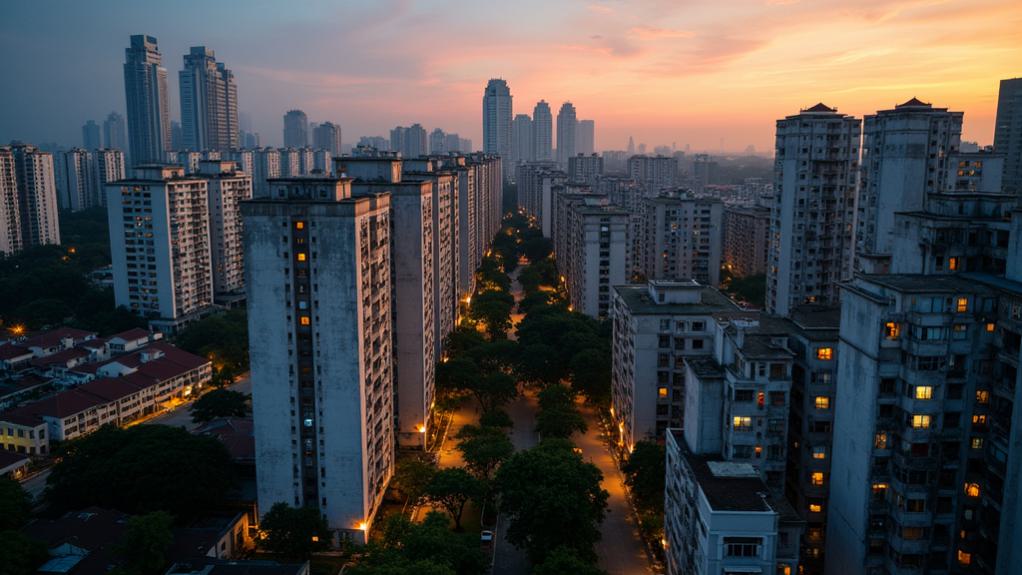As Singapore shifts away from its long-standing Selective En bloc Redevelopment Scheme (SERS), the government has announced a fundamental policy shift toward the newly conceived Voluntary Early Redevelopment Scheme (VERS).
This new scheme will replace the compulsory acquisition model with a resident-driven approach for rejuvenating aging public housing estates.
This changeover marks the end of SERS, with no new projects planned beyond the 77 completed exercises out of 82 announced since the scheme’s inception.
The structural differences between these programs reflect Singapore’s evolving approach to estate renewal.
SERS operated through government-initiated mandatory acquisition of selected blocks, typically under 50 years old, targeting precincts with high redevelopment potential where land could be better utilized.
Under SERS, residents received compensation at market value plus rights to new subsidized flats nearby, creating a highly selective but generous redevelopment pathway that has now exhausted most suitable sites.
VERS introduces a fundamentally different mechanism, requiring majority resident approval through voting in selected precincts where flats have reached approximately 70 years into their 99-year lease terms.
This voluntary framework, targeted for establishment by 2030 with rollout beginning in the following decade, represents a more broadly applicable but less generous compensation structure compared to its predecessor.
The implications for aging HDB flat owners are substantial, as the transition creates greater uncertainty regarding compensation terms and eliminates the compulsory nature that previously guaranteed participation in redevelopment exercises.
While VERS aims to provide rejuvenation opportunities for older estates, compensation packages are expected to be less generous due to the advanced age of participating properties.
Specific details regarding compensation methods, selection criteria, and replacement housing arrangements are still under development.
This policy evolution addresses the long-term challenge of aging public housing stock by implementing staged renewal over 20-30 years, potentially avoiding mass lease expiry issues anticipated in the 2070s and 2080s.
However, the voluntary nature of VERS means that flat owners will face increased variability in redevelopment outcomes.
There will be fewer opportunities for the market-based compensation mechanisms that characterized earlier SERS exercises, fundamentally changing the landscape of public housing renewal in Singapore.
Given that HDB housing remains subject to Ethnic Integration Policy and other regulatory requirements, the transition from SERS to VERS must consider these existing frameworks in the redevelopment process.
Initial targeted areas for VERS include established estates such as Queenstown, Bukit Merah, Toa Payoh, Ang Mo Kio, Bedok, Tampines, and Yishun.
For residents who choose not to participate in VERS, they can remain in their flats until lease expiry and receive alternative support from the government.





